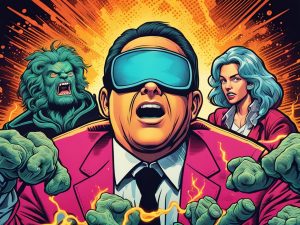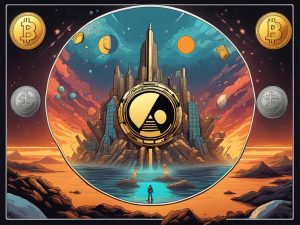Charles Hoskinson warns of traditional financial institutions infiltrating the crypto sphere
Charles Hoskinson, the creator of Cardano (ADA) and co-founder of IOHK, recently expressed his concerns about traditional financial institutions entering the cryptocurrency space and potentially undermining its core principles. In a live YouTube stream, he emphasized that the industry is at a turning point, highlighting the dominance of asset-backed stablecoins like USDT and USDC.
Asset-backed stablecoins and their risks
Hoskinson pointed out that asset-backed stablecoins contribute to 70% of on-chain transaction volume, surpassing cryptocurrencies like Ethereum (ETH) and Bitcoin (BTC). However, he raised concerns about their centralized nature and susceptibility to regulation by issuing jurisdictions. He explained that these stablecoins have significant implications for decentralized finance (DeFi) economies and can dictate outcomes in the event of blockchain forks.
Cardano founder suggests algorithmic stablecoins as an alternative
Hoskinson advocated for algorithmic stablecoins as a more compatible option with cryptocurrency’s decentralized ethos. He argued that on-chain algorithms should govern these stablecoins instead of a central entity that could manipulate outcomes. However, other industry figures like Colin LeMahieu have expressed doubts about the technical aspects and economic fundamentals of algorithmic stablecoins.
Frustration with profit-focused mentality and growing influence of legacy financial actors
Hoskinson expressed frustration with the crypto community’s focus on profit rather than the underlying principles of cryptocurrency. He also cautioned about the increasing influence of legacy financial actors within the industry, such as large ETFs and centralized exchanges. Hoskinson urged participants to reflect on their values and decisions to ensure that cryptocurrencies remain true to their original purpose of offering an egalitarian, transparent, and censorship-resistant alternative to traditional finance.


 By
By

 By
By

 By
By
 By
By